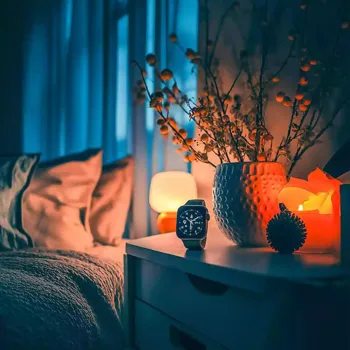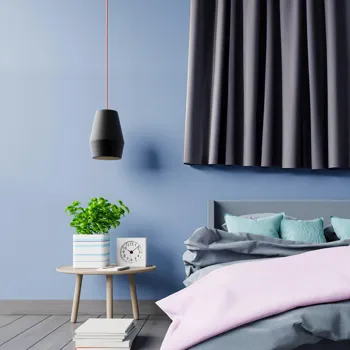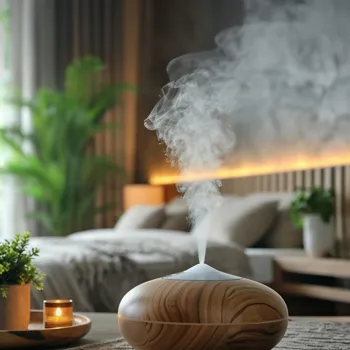Discover the secrets to a restful night's sleep with a relaxing evening routine. Learn how to unwind and prepare for a peaceful slumber with simple yet effective strategies. Enhance your well-being by
creating a serene atmosphere and calming your mind before bedtime. Prioritize quality sleep for a refreshed morning
In the hustle and bustle of our daily lives, winding down before bed often takes a backseat. We're glued to our phones, catching up on work, or simply feeling overwhelmed by the day's events. But quality sleep is crucial for our physical and mental well-being.

A consistent and relaxing evening routine can be a game-changer in achieving restful nights and waking up refreshed. It's all about signaling to your brain that it's time to power down and prepare for sleep.
So, ditch the late-night screen time and embrace these simple yet effective strategies for a serene evening and a sound slumber.
Avoid stimulating activities before bed to improve sleep quality
Many of us unknowingly sabotage our sleep with habits that stimulate our minds and bodies right before bed. Think about it: scrolling through social media, catching up on the latest news, or even engaging in intense conversations can keep you wired and prevent you from drifting off easily.

The blue light emitted from our digital devices suppresses melatonin, the sleep-regulating hormone. Try to keep away from all distractions for a better sleep. Replacing these activities with calming alternatives is the key to a successful evening routine.
Creating a peaceful bedroom, is also another important aspects of a relaxed sleeping routine.
Create a sleep-friendly environment: dark, quiet, cool room with blackout curtains, white noise, comfy bedding
Start by creating a conducive sleep environment. Make sure your bedroom is dark, quiet, and cool. These simple adjustments can significantly impact the quality of your sleep.

Invest in blackout curtains to block out any unwanted light, use earplugs or a white noise machine to minimize noise distractions, and set your thermostat to a comfortable temperature. The ideal room temperature for sleep is generally between 16 to 19 degrees Celsius (60 to 67 degrees Fahrenheit).
Adding a comfortable pillow ensures that you wake up, feeling fresh. Using comfortable blankets, will make sure the warmth is retained and there is sound sleep.
Calming activities for better sleep: reading, bath, meditation
Now, let's talk about calming activities. Reading a book, is a great way to transition your mind away from the day's stresses. Choose a light-hearted novel or a non-fiction book that you find interesting but not overly stimulating. Avoid anything that might trigger anxiety or excitement before bed.

Taking a warm bath or shower can also work wonders. The change in body temperature signals to your brain that it's time to relax. Incorporate Epsom salts or calming essential oils like lavender into your bath for an extra dose of relaxation.
A simple meditation session, before bed, is also know to improve sleep quality, significantly.
Mindful breathing techniques aid relaxation for better sleep
Another important aspect of a relaxing evening routine is mindful breathing. Deep breathing exercises can help calm your nervous system and reduce stress levels.

Try the 4-7-8 technique: inhale deeply through your nose for 4 seconds, hold your breath for 7 seconds, and exhale slowly through your mouth for 8 seconds. Repeat this several times, focusing on your breath and letting go of any tension in your body.
You can also find guided meditation apps or online resources that offer breathing exercises specifically designed for relaxation and sleep. Another simple way to get a good sleep is to get up early and ensure that you get regular exercise during the day.
Avoid caffeine and alcohol before bed for better sleep quality
What you consume in the hours leading up to bedtime can also impact your sleep. Avoid caffeine and alcohol, which can interfere with your sleep cycle. While alcohol may initially make you feel drowsy, it can actually disrupt your sleep later in the night.
Avoid caffeinated drinks such as coffee after evening, especially after 4 PM. A light snack, such as a herbal tea, can be calming. Certain teas, such as chamomile and lavender, have natural calming properties that can promote relaxation.
It's important to listen to your body and find what works best for you. Consistency is the key to establishing a successful evening routine that will improve your sleep quality and overall well-being.
AI Generated Content. Glance/InMobi shall have no liability for the content











